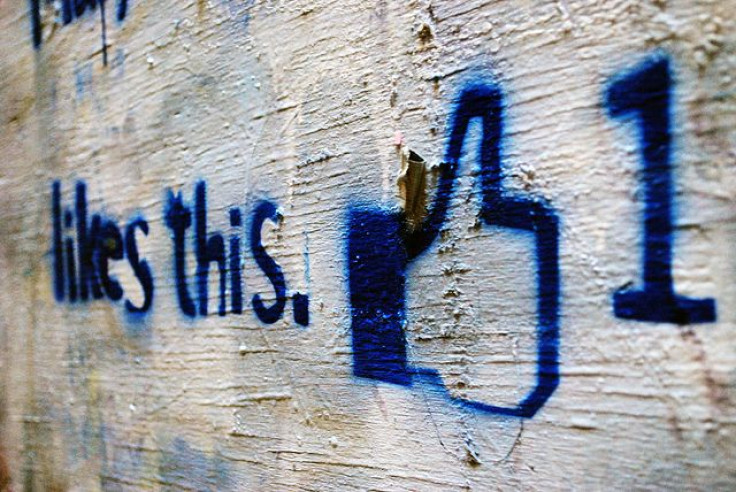Facebook, The Mood Stabilizer? Users Look At Profiles Of Less Successful People When Sad

When we’re feeling down, the last thing we want to be reminded of is other people’s success — even if we love them and want nothing but the best for them. On Facebook, a new study shows, we exploit this tendency to its maximum.
In all honesty, we can’t help it — we’re social beings. We glance. We notice. We compare. A large portion of our self-esteem, whether we like it or not, tends to come from how we see ourselves in relation to other people. We feel successful, until our neighbor buys a more expensive car. It’s vain, but humans are vain sometimes.
“When people are in a negative mood, they start to show more interest in the less attractive, less successful people on their social media sites,” said Silvia Knobloch-Westerwick, co-author of the study and professor of communication at the Ohio State University, in a statement.
Knobloch-Westerwick and her colleague Benjamin Johnson wanted to learn how people responded to negative moods when confronted with an opportunity to browse social media. They recruited 168 college students and had them interact with a fake social networking site, which they called SocialLink. Before viewing the various profiles, subjects performed a baseline test on facial recognition. The trick was, no matter how they did, half the people were told they either did “excellent” or “terrible.”
Armed with the confidence they had swayed their subjects’ moods, they gave them the chance to view a total of eight profiles. All the information and status updates were relatively nondescript; the only differences between them were the amount of money they made and their attractiveness level. More often than not, the team found, people in bad moods visited the less desirable profiles. Neutral moods and happy moods tended toward more attractive profiles.
“If you need a self-esteem boost, you’re going to look at people worse off than you,” Knobloch-Westerwick said. “You’re probably not going to be looking at the people who just got a great new job or just got married.”
These behaviors probably make sense to you. When was the last time you felt down? Chances are you didn’t actively seek out opportunities to make yourself sink lower. And if you didn’t have a living, breathing human to help cheer you up, you might have ventured over to a particular social networking site to get the anonymous, inert reassurance you’re not so bad after all.
This behavior isn’t necessarily worthy of guilt. Even Knobloch-Westerwick concedes that social networks offer a supreme benefit when we’re trying to self-enhance — psychology-speak for the dance we do to make ourselves feel better about our own miserable lives.
“One of the great appeals of social network sites is that they allow people to manage their moods by choosing who they want to compare themselves to,” she said.
An unfortunate limit to the study is whether these strategies actually help. The researchers weren’t testing how effective the flock to Facebook was; they were only making the observation that it happened. Of course, while it may be the case people overindulge in their strategy of self-enhancement, the presence of a trend should indicate at least some evidence that it works. In other words, people wouldn’t be doing it if it didn’t help at least a little bit.
If the site does offer this self-medicating effect, it would be one of the few benefits research has found to its consistent use. Prior studies have found Facebook not only makes people compare their own bodies to friends’ online, but actively makes them less happy overall.
Maybe it all depends on the company you keep.
Source: Johnson B, Knobloch-Westerwick S. Glancing up or down: Mood management and selective social comparisons on social networking sites. Computers in Human Behavior. 2014.



























